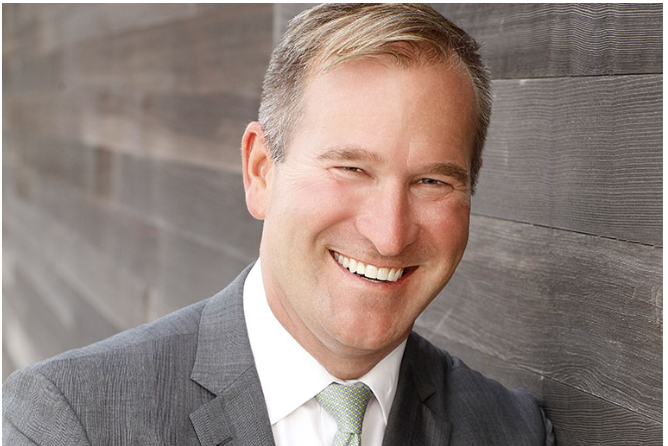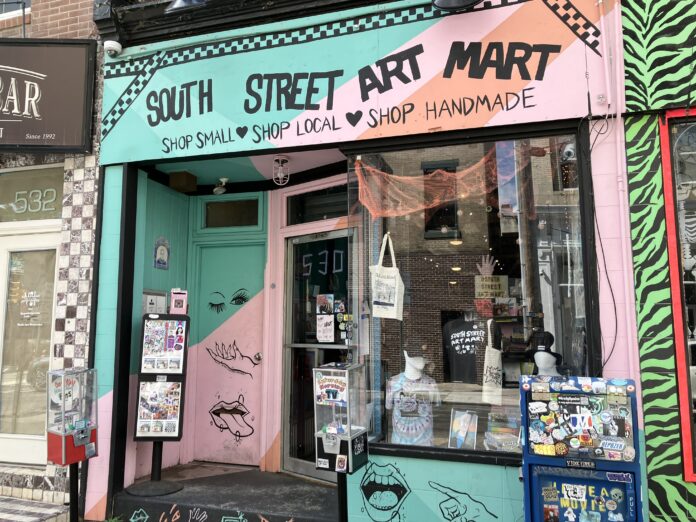Pennsylvania remains the only state in the northeast region without basic LGBTQ+ civil rights protections in place, according to the Movement Advancement Project.
Nine nearby states from Vermont to Maryland as well as the District of Columbia have laws on the books protecting against discrimination in employment and housing.
Out Leadership ranked the state 23rd in its recently released 4th annual LGBTQ+ Business Climate Index. The organization is a global network for LGBTQ+ business leaders and companies.
The Index is a ranking from highest to lowest of all 50 states as it relates to legal, political, emotional support, health, business and other parameters for queer Americans. The group has 94 member companies – including Amazon, American Express, Bloomberg, Citi, CocaCola, Comcast, Goldman Sachs, HSBC, IBM, Microsoft, Nike, and Walmart.
Pennsylvania has had its moments recently. The Legislature finally removed ‘homosexuality’ from the state crime code, and in an executive order, Gov. Tom Wolf banned ‘conversion therapy’ as it relates to the state’s involvement with the discredited practice of attempting to change a person’s sexual orientation.
Out Leadership founder Todd Sears said the index is “a living roadmap, highlighting the places where we must be both reactive and proactive.
“While the top ranked states for LGBTQ+ equality broadly increased in score, the bottom ranked states decreased in score or remained stagnant, signaling a widening gap across the country between the ideology of equality and the tactics used to achieve or dismantle it,” he added.
“Our data reveals that the gap continues to widen with some states now legislating and regulating what amount to anti-LGBTQ+ laws and policies,” Sears told the Capital-Star.
The Human Rights Campaign officially declared 2021 as the “worst” year in recent history for states enacting anti-LGBTQ+ laws. By May of that year, the seventeenth anti-LGBTQ bill was enacted into law. In 2022, over 300 anti-LGBTQ+ bills have surfaced in 36 state legislatures, according to the Human Rights Campaign.
On June 21, the Pennsylvania Senate Education Committee moved two bills, sponsored by Lancaster County Republican Sens. Ryan Aument and Scott Martin that advocates have derided as “grave attacks against LGBT Pennsylvanians.”
Aument’s bill is ““is essentially a book and education ban on gay and lesbian relationships,” Preston Heldibridle, the executive director of the Pennsylvania Youth Congress, told the Capital-Star.
Martin’s legislation “is an expansive gag order for school personnel on LGBT issues, forces the outing of vulnerable students to parents or guardians, and creates a private right of action if those terms are violated, among other cruel provisions,” Heldibridle said.
The bills “… purposefully conflating graphic pornography with children’s books that reference LGBT families in hopes that Pennsylvanians won’t notice,” Heldibridle said.
“They are trying to sneak in this horrific, subversive attack on LGBT inclusion under the guise of reasonable limits on sexually explicit content,” Heldibridle continued. “Those limits already exist. They cherry pick outlandish scenarios to advance categorical bans to appear like defenders of children when in reality, proponents of these bills are the ones exploiting children to further their own goals and causing irreparable harm.”
The bills are “worse than Florida’s ‘Don’t Say Gay’ legislation,” Heldibridle concluded.
The political shifts “are happening in a country that has never been more polarized.” Sears points out that “Any number of factors have contributed to this fact: COVID, the Jan. 6 insurrection, pending landmark Supreme Court decisions, and the upcoming midterm elections, to name a few,” he told the Capital-Star. “Each of these events and many more fuel a fire that motivates those organized in opposition to equality.”

If you think the current craze to reverse gay civil rights gains has no effect on the market, Sears says his organization’s data indicates that qualified, talented, LGBTQ+ employees are leaving the states sinking to the bottom of the Index, and moving to states that are on the ascent. In fact, 24 percent of LGBTQ+ workers have already moved to a more inclusive city; 36 percent would consider moving; and 31 percent would take a pay cut to live in an inclusive city.
The Capital-Star asked chamber of commerce executives from across the state to chime in on what they think needs to happen in the Keystone State regarding gay civil rights.
Within the Northeast Region of the country as rated by the Index, Pennsylvania comes in as 11th or last among New York (1st within region and nation), Connecticut (2nd in region), Massachusetts (3rd), New Jersey, Vermont, Maine, Rhode Island, Maryland, New Hampshire, and Delaware.
Pennsylvania-based chambers of commerce that focus on or actively include the LGBTQ+ community reacted to the Index by suggesting specific needs to happen regarding LGBTQ+ civil rights in order to improve the business climate for all involved.
In Pittsburgh
Ronald L. Hicks, Jr., the president of the Pittsburgh-based Three Rivers Business Alliance, is clear on what he thinks needs to happen. The Alliance is a membership-based, business organization advocating for people of all genders and sexualities.
“First and foremost, Pennsylvania needs to amend the Pennsylvania Human Relations Act to include protections for sexual orientation and gender identity. Nondiscrimination is about respect for people of all backgrounds and faith — that’s why 94% of America’s biggest companies have inclusion policies that protect LGBTQ+ people as part of their nondiscrimination policies,” Hicks said in an email.
At least 70 of the state’s 2,560 municipalities have LGBTQ+ civil rights protections in place, according to the state Attorney General Office’s website. This patchwork of equality literally means one can marry on a weekend, then display a wedding photo at work Monday and be fired with no legal recourse available.
“We continue to be the only state in the Northeast that doesn’t have protections in statute for LGBQT Pennsylvanians,” Julie Zaebst, a senior policy associate with the American Civil Liberties Union of Pennsylvania, said.
Hicks points out what is obvious to some but not all.
“Nondiscrimination is more than just about respect; it’s good business,” Hicks said. Years of research, he notes, show that cities and states with nondiscrimination protections for LGBTQ+ people (including protections against credit and loan discrimination based on sexual orientation and gender identity) are more attractive to highly educated, innovative, and creative people — people who drive invention, entrepreneurship, and economic growth,” he said.
Hicks also noted “two-thirds of meeting planners recently said they’ll avoid states with anti-LGBTQ laws. Thus, including LGBTQ+ people in Pennsylvania’s nondiscrimination protections will deliver real value to the only state in the Northeast without such protections.”
Hicks also called for “Pennsylvania and all of its municipalities and authorities need to include LGBTQ+ certified businesses in all aspects of their disadvantaged business enterprise (DBE) procurement and loan/grant programs.” Currently, the state’s Department of General Services and the cities of Philadelphia and Pittsburgh recognize LGBTQ+ certified businesses as part of their DBE programs.
“LBGTQ+ businesses generate over $1.7 trillion in economic impact, help create jobs, and innovate business solutions nationwide,” Sears said.
In Philadelphia
Zachary Wilcha, the executive director of the Independence Business Alliance, said he agrees the state needs a comprehensive statewide law that establishes nondiscrimination protections.
“We desperately need a law in place. Right now, the rights of LGBTQ+ individuals vary erratically as you pass from municipality to municipality, depending on which local laws are codified,” he told the Capital-Star. IBA represents LGBTQ+ professionals and allies in the Greater Philadelphia area.

According to Wilcha, “a fundamental building block of a strong economy is that everybody should be able to participate in all aspects of daily life with dignity and respect and without fear of discrimination.”
No one, he said, “should be at risk of being fired from their job, refused service, or denied housing simply because of who they are or whom they love.”
Personal dignity and safety “are major factors for all business owners, employees, customers, and visitors when it comes to deciding where they invest their time and money,” Wilcha stressed.
In central Pennsylvania
Harry Young, the executive director of the Keystone Business Alliance, which represents gay businesses in the state’s central region, seconded Wilcha’s motion for inclusion.
“So much of our state’s population is not protected by the current patchwork of local municipal ordinances. Fairness and inclusion are good for business as we try to attract and retain talent and build an inclusive and attractive marketplace,” Young said.
To its credit, “Pennsylvania was among the first states years ago to recognize LGBT certified businesses in the state’s supplier diversity program,” Young said.
But there’s so much more that could be accomplished with passage of a statewide LGBTQ anti-discrimination law known as the Fairness Act.
The state Legislature has entertained numerous gay civil rights bills over the last two decades but has been unable to pass any comprehensive legislation.
On the congressional level, U.S. Rep. Glenn ‘GT’ Thompson (PA-15), was one of 157 Republicans in the U.S. House to recently vote “nay” on the Respect for Marriage Act. With no apparent sense of irony, days later he said at his son’s same-sex wedding ceremony: “We love it when they find their one true love.”
That’s what makes passage of the Fairness Act in Pennsylvania so important.
“If passed, the Fairness Act amends the Pennsylvania Human Relations Act (PHRA) to prohibit discrimination based on sexual orientation, gender identity, or gender expression in employment, housing, and public accommodations,” Hicks said.
Recent developments in the law, culminating in the U.S. Supreme Court’s decision in Bostock v. Clayton County, make it clear that discrimination “because of sex” necessarily includes sexual orientation and gender identity under Title VII of the Civil Rights Act of 1964.
Another factor in Pennsylvania is that the Pennsylvania Human Relations Commission — the agency tasked with enforcing the Human Relations Act — issued guidance in 2018 interpreting state law as prohibiting “discrimination on the basis of sex assigned at birth, sexual orientation, transgender identity, gender transition, gender identity, and gender expression.”
This interpretation of state law, Hicks notes, is consistent with developing pre-Bostock case law and with the Equal Employment Opportunity Commission’s decisions and guidance clarifying that a discrimination claim based on sexual orientation or gender identity is discrimination on the basis of sex under Title VII.
“Yet far too many LGBTQ+ individuals have fallen through the gaps in the patchwork of existing protections in Pennsylvania,” he told the Capital-Star.
LGBTQ+ workers of color face multiple barriers that force them out of the workforce at disproportionately high rates, and transgender people are almost four times as likely to have a household income of less than $10,000 compared to the general population, according to the Index.
“Thus, the Fairness Act codifies existing laws so that no matter where one resides in Pennsylvania, an LGBTQ+ person will be free from discrimination in employment, housing, and public accommodations,” Hicks said.
But, he noted, “what the act does not do is take away one’s individual freedom of religion.”
“However, as our federal and state courts have repeatedly held, when it comes to employment, housing, and public accommodations, religious freedom does not give anyone the right to use their religion to discriminate against and impose those beliefs on others who do not share them,” Hicks said, adding that “if people understood what the Fairness Act does and does not do, then its passage would finally happen.”
David Black, the former CEO of the Harrisburg Regional Chamber of Commerce/CREDC, told the Capital-Star that “equality involves both individual and collective attitudes, more simply put, what other people think about other people.”
The state “has moved to become more accepting every year. Understanding LGBTQ+ civil rights is getting to know people, learning about differences and discovering similarities.”
Black believes “the Fairness Act, HB 300, will pass in the next couple of sessions of the General Assembly.” Why? Because he thinks eventually “the workforce becomes the critical issue for business, with work/life balance a main component of attracting and keeping a talented workforce,” he said.
The kind of social justice change reflects “an example of the government keeping up with society versus the government leading, and that’s not a bad thing.”
Frank Pizzoli is a writer for the Pennsylvania Capital-Star, where this article first appeared.
